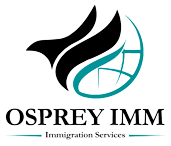SPONSORSHIP
Your relatives can live, study and work in Canada if they become permanent residents of Canada. You can sponsor certain relatives to come to Canada if you’re at least 18 years old and a:
- Canadian citizen or,
- person registered in Canada as an Indian under the Canadian Indian Act or,
- permanent resident of Canada
Once the IRCC has received your PR immigration application, you will receive an Acknowledgment of Receipt also known as an AOR. This AOR is a confirmation that your application file has been created. You may also be referred to an “AOR date” which is the date from when your 6 months intended processing time begins.

Who is Eligible for Family Immigration to Canada?

Who Can I Sponsor?
What Are the Income Requirements to Sponsor a Family Member?
As a sponsor, you must enter into a Sponsorship Agreement with your sponsored family member. By signing this agreement, you commit to providing financial support for their basic needs, including food, clothing, shelter, and health needs not covered by public health services.
In certain sponsorship cases, you will also need to meet or exceed the Low Income Cut-off (LICO) if:
- You are sponsoring a spouse or partner who has a dependent child, and that dependent child has one or more children of their own.
- You are sponsoring a dependent child who has one or more dependent children of their own.
- You are sponsoring a parent or grandparent.
Requirements for a Sponsor Interested in Living in Canada
In addition to being a Canadian citizen or permanent resident, the sponsor must also fulfill a few other requirements in order to be eligible.
The sponsor must:
- Prove that they will be able to financially support their family member and any dependent, if necessary
- Enter into an agreement with the Government of Canada or Quebec, as well as the sponsored relative, where the sponsor will agree to support the family member for a certain amount of time. The sponsored relative must make an effort to support themselves, as well.
- Either reside in Canada prove their intention to live in Canada when the sponsored relative arrives in Canada
- Be at least 18 years old
- Not be incarcerated or charged with a serious offence
- Not be bankrupt
- Not be under a removal order if a Permanent Resident
How to Apply for Family Sponsorship
Applying for family sponsorship in Canada involves several steps. Here’s a general overview of the process:
- Check your eligibility: Ensure you meet the requirements to be a sponsor and that your family members meet the criteria to be sponsored.
- Complete the application package: Download the application package from the Immigration, Refugees and Citizenship Canada (IRCC) website. Fill out all forms accurately and completely.
- Gather required documents: Collect all necessary supporting documents, such as proof of relationship, identity documents, and financial information.
- Submit the application: Send the completed application package along with the required documents to the appropriate processing center. The address can be found in the application guide.
- Pay the fees: Pay the processing fees for the sponsorship application and, if applicable, for the permanent residence application of the family member(s) you are sponsoring.
- Wait for processing: The processing time can vary depending on various factors, such as the type of sponsorship and the number of applications being processed.
- Attend interviews and provide additional information: You or your family member(s) may be asked to attend interviews or provide additional information during the processing of the application.
- Receive a decision: Once the application is processed, you will receive a decision on whether the sponsorship application has been approved.
- Complete the landing process: If the application is approved, your family member(s) can complete the landing process to become permanent residents of Canada.
It’s important to note that the process and requirements may vary depending on the specific family sponsorship category you are applying under (see below).
Sponsor Your Spouse or Common Law Partner
The Spousal Sponsorship program is a subsection of the Family Class immigration category. Under this program, a Canadian citizen or permanent resident may sponsor a husband, wife, or common-law partner for Canadian permanent residence.
If you are a Canadian citizen or permanent resident of Canada you may sponsor:
- your spouse (you are legally married)
- common-law partner (you are not legally married but have been living together for at least 12 months in a conjugal relationship).
- conjugal partner (you are not legally married or in a common-law relationship and they are living outside Canada)
To be eligible for spousal or common-law partner sponsorship, you must:
- be 18 years of age, a Canadian permanent resident living in Canada or a Canadian citizen,
- demonstrate that you can provide for the basic needs of yourself and your spouse or partner,
- Prove your relationship with the sponsored person is genuine by providing supporting documentation.
To be eligible for spousal or common-law partner sponsorship, the sponsored person must:
- be at least 18 years of age and not too closely related to you.
Sponsor Your Children to Canada
You have the opportunity to sponsor your dependent children, whether they are biological or adopted, to reside permanently with you in Canada.
Children must meet the following definition of a dependent child to be eligible for sponsorship:
- A child is considered a dependent if he or she is not married or in a common-law relationship and is under 22 years of age.
- If a child is over 22 years of age, they may be considered a dependent if they have a physical or mental condition that prevents them from being able to support themselves.
To be eligible under this program, you:
- and your child abroad must be approved by Immigration, Refugees and Citizenship Canada (IRCC) to receive a visa,
- must prove your relationship with the child you are sponsoring, either by a birth or adoption certificate.
Sponsor Your Parents and Grandparents to Canada
The Parent and Grandparent Sponsorship Program (PGP) and the Super Visa Program are initiatives that allow Canadian citizens and permanent residents to bring their parents and grandparents to Canada.
To qualify for the Parents and Grandparents Program, you must:
- Be a Canadian citizen or permanent resident residing in Canada.
- Be at least 18 years old.
- Be the child or grandchild of the individual(s) you are sponsoring.
- Meet the Minimum Necessary Income (MNI) for your family size and provide Canada Revenue Agency notices of assessment as proof.
- Sign a sponsorship agreement committing to support your family member(s) for 20 years.
- Sign an additional agreement if you reside in Quebec.
If a co-signer is assisting you in meeting the MNI requirements, they must also meet the same eligibility criteria as the sponsor. Additionally, the co-signer must:
- Not be the person being sponsored.
- Have lived with you in a conjugal relationship for at least one year.
If your application for sponsorship is refused, you can appeal the case to the Immigration Adjudication Division (IAD) within 30 days of the refusal. IAD appeals are lengthy, costly and by no means guaranteed. If your case was refused, you should contact a lawyer immediately in order to ensure your appeal is filed on time.
What are the Requirements for a Spouse or Partner Being Sponsored?
The spouse or partner applying for permanent residence must be at least 18 years old, and both the sponsor and the beneficiary must prove their relationship is genuine. Immigration officials have been faced with spousal sponsorship cases in which the individual is just applying for permanent residence and not to be with their partner. In such cases, the individual may be denied. Therefore, it is important to only enter under this class if the intent is sincere. A common-law partner applying under this class must live with their sponsor in Canada for a minimum of 1 year. This is not necessarily the case for a spouse. In cases where the sponsor and applicant are married but live apart overseas, the sponsor will sponsor the applicant so they can live together in Canada. This does not apply for conjugal partners.
Same-Sex Partners
The sponsorship rules for same-sex spouses or partners in Canada are the same as those for opposite-sex spouses or partners. If you were married inside Canada, you must have a legal marriage certificate from the province or territory in which you got married. If you were married outside of Canada, you will also be required to provide a marriage certificate to prove that your marriage is considered legal in the place you got married, as well as in Canada.
Common-Law Partners
To be considered a common-law partner, one should have lived together with another person in a conjugal relationship for at least one year. This applies to both opposite- and same-sex relationships. In a sponsorship case, you will typically have to provide proof of this union, which can be done in the form of financial records, property, utility bills, joint accounts or other means.
Conjugal Partners
A conjugal partner is an individual outside of Canada who has been in a binding relationship with a Canadian sponsor for at least one year, but could not live with their partner. This also applies to both opposite- and same-sex relationships. To sponsor a conjugal partner, you must prove you could not live together due to extenuating circumstances.
Inland Spousal Sponsorship
To qualify for the Inland sponsorship category, the foreign spouse or partner must have temporary resident status in Canada, which can be as a worker, student, or visitor. Applicants may be eligible for an open work permit, which ensures they can work for a Canadian employer while the application is processed. This may help prevent any issues that can arise if an existing visa expires before the sponsorship process is completed.
Outland Spousal Sponsorship
The Outland sponsorship category applies to a situation where the foreign partner is living outside of Canada. While the sponsored individual may still be able to travel in and out of Canada during the application process, their application will be processed through the visa office in their country of origin or permanent residence.
Reasons You May Not Be Able to Sponsor
- are sponsoring a spouse or partner but you signed an undertaking for a previous spouse or partner and it hasn’t been three years since they became a permanent resident,
- previously sponsored someone and did not pay back any social assistance that they received while the undertaking was in place.
- are in default on an immigration loan or a performance bond
- did not pay court-ordered alimony or child support
- have declared bankruptcy which has not been discharged
- were convicted of
- an offence of a sexual nature,
- a violent crime,
- an offence against a relative that caused bodily harm or
- threatened or attempted to commit any of the above offences—depending on the nature of the offence, how long ago it happened and if you received a pardon
- are sponsoring a spouse or partner and you were previously sponsored as a spouse, common-law or conjugal partner and became a permanent resident of Canada less than five years ago,
- are under a removal order,
- are in a penitentiary, jail, reformatory or prison,
- have already applied to sponsor your current spouse or partner and haven’t received a decision.

